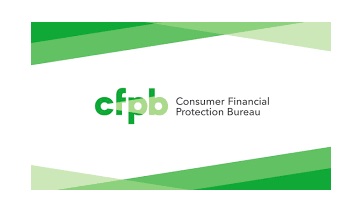CFPB to regulate BNPL, considered akin to credit cards

The Consumer Financial Protection Bureau (CFPB), the federal agency responsible for protecting the financial interests of consumers in the USA, announced last week that it was tightening its legislation on BNPL. The CFPB considered that BNPL products were similar to credit cards, and therefore subject to the same consumer law measures. This stance has prompted a reaction from fintech specialist Klarna.
FACTS
-
On May 22, the CFPB published an announcement on the forthcoming regulation of fractional payments (Buy Now Pay Later) in the United States.
-
The BNPL market in the country has grown significantly in recent years. Its expansion, however, has led to a significant number of complaints, particularly concerning refunds and disputed transactions.
-
According to a CFBP report, these complaints account for around 13% of BNPL transactions, prompting the federal agency to reconsider the regulations governing the service in question.
-
After more than two years of investigation, the CFPB concluded that BNPL was very similar to a traditional loan, and in particular to a bank-issued credit card, and should therefore be subject to similar rules. This means guaranteeing :
-
reimbursement in the event of return of the cancelled product or service;
-
Systematic investigation of complaints;
-
regular transmission of account statements to users.
-
BNPL lenders could therefore be obliged to comply with the criteria of credit card providers.
CHALLENGES
-
Focus on the user: The CFPB wishes to better protect consumers by reinforcing their rights, in the same way as in the use of credit cards, a solution that is highly developed across the Atlantic. The publication of a market report on BNPL in 2022 highlighted a worrying situation regarding debt accumulation, regulatory arbitrage and user data collection. While the focus of concern seems to have shifted more towards consumer rights, the CFPB's action testifies to a political will to control financial services considered risky.
-
A question of defining the players and their roles: Although many regulatory bodies have admitted a difference between credit card providers and BNPL players, the CFPB ultimately considered the two players to be similar. From the consumer's point of view, for example, the use of their service remains close. The BNPL is offered as a payment option in the same way as the credit card. Both products can also be used in a variety of situations, such as online, in-store, on websites or applications. What's more, the CFPB explains that, like conventional credit, BNPL combines payment processing and credit services, while charging transaction fees to merchants.
-
Immediate reaction: Klarna did not wait long after the release of the press release to express its dissatisfaction and incomprehension. To its credit, several countries such as Australia and the UK have already recognized the fundamental differences between credit cards and BNPL products. Klarna insists on these differences and assures us that some of the procedures mentioned have already been put in place. The company defends BNPL as a short-term financing option, with no interest charged to the user, and no fees when paid on time. It also claims to be less risky than credit cards, whose debt is now estimated at over $1,000 billion in the United States, according to Klarna.
MARKET PERSPECTIVE
-
The BNPL explosion has heightened concerns about over-indebtedness among individuals in the USA, but also in Europe. In the UK, for example, the government took up the issue as early as 2022, noting the level of overindebtedness and the worsening economic situation.
-
This is also the case in the European Union, where the European Council adopted the new European directive on consumer credit on October 12. Unsurprisingly, the directive called for stricter regulation of BNPL, with the aim of protecting consumers, avoiding abuses and ensuring fair competition between players in the sector.
-
Thanks to an ambitious and risky strategy, Klarna has established itself as one of the leading BNPL solutions in the United States. For several years now, the company has been recording significant growth in the number of customers. However, this success has not been without financial consequences for the fintech, and changes in the political context regarding BNPL could ultimately impact its business.
